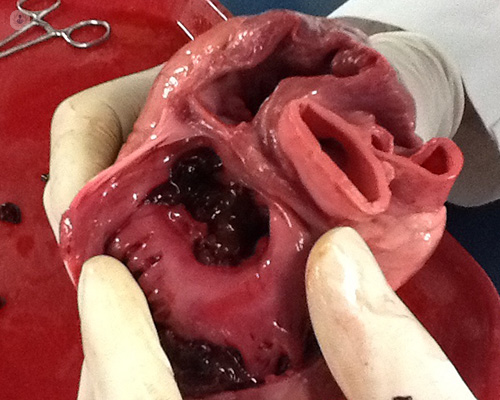

What is the cardiovascular system?
The cardiovascular system is part of the larger circulatory system that circulates fluids such as blood throughout the body. It is made up of three independent systems that work together that include the heart, lungs and arteries and veins. The circulatory system also moves lymph – a clear fluid that gets rid of unwanted material in the body. The heart, blood and vessels make up the cardiovascular part of the circulatory system.

What are the diseases of the cardiovascular system?
One of the most common diseases of the circulatory system is arteriosclerosis in which fatty deposits, such as cholesterol and other materials, thicken the walls of the arteries. Other cardiovascular or heart-related diseases include:
- Angina – both a cardiac and vascular disease
- Arrhythmia
- Congenital heart disease
- Coronary artery disease (CAD)
- Heart attack
- Heart failure
- Mitral regurgitation
- Mitral valve prolapse
- Pulmonary Stenosis
Vascular diseases are conditions that affect the blood vessels. They include:
- Peripheral artery disease
- An aneurysm
- Atherosclerosis
- Renal artery disease
- Raynaud’s disease
- Peripheral venous disease
- Stroke
- Blood clots
What are the symptoms of cardiovascular disease?
The commonest symptoms that most people are familiar with are a heart attack or stroke but there are other symptoms to be aware of. These include:
- Severe pain or discomfort in the chest
- Pain that spreads to the shoulders, neck, arm or jaw
- Chest pain that is not relieved by rest
- Heart palpitations
- Low blood pressure
- Sweating
- Shortness of breath
- Nausea or vomiting
- Dizziness or fainting
- Weakness and fatigue
When would I see a cardiologist?
A cardiologist is a specialist in cardiovascular medicine and a family doctor may refer the patient to see them. A patient can visit a cardiologist if they have heart pain and a family history of heart problems. It is also worth seeing a specialist if the patient has high total cholesterol, hypertension, a history of smoking, diabetes and gum disease.
